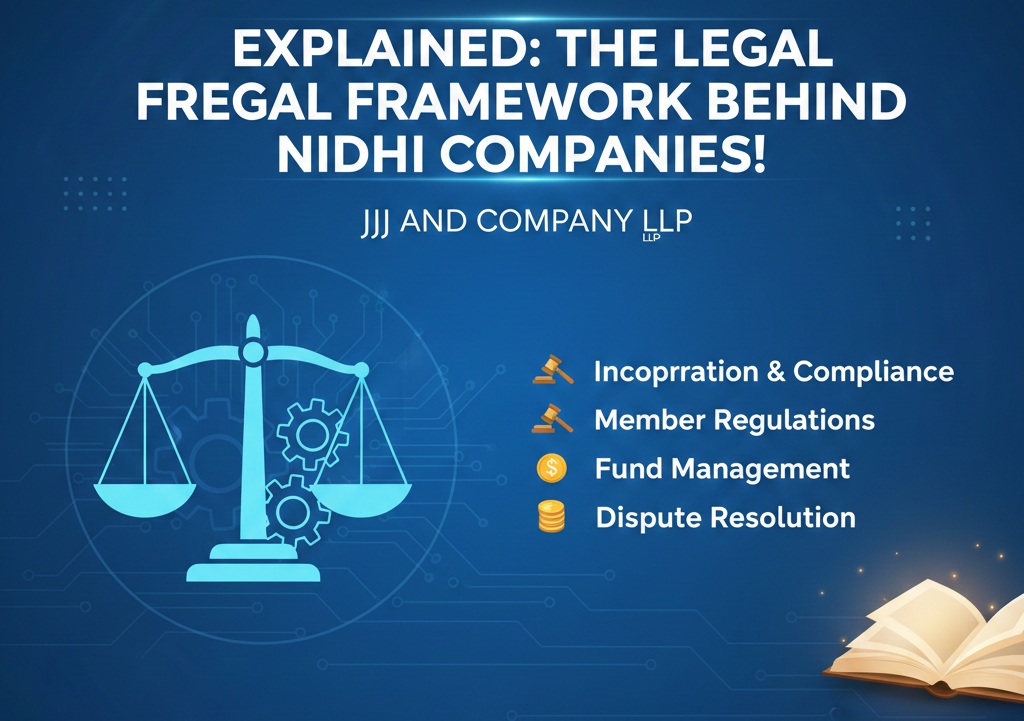The legal framework governing Nidhi Companies in India is primarily established under the Companies Act, 2013, along with related rules and regulations. Nidhi Companies are regulated by the Ministry of Corporate Affairs (MCA) and, in some aspects, by the Reserve Bank of India (RBI) as well. Here’s an explanation of the legal framework behind Nidhi Companies:
Companies Act, 2013:
- Incorporation: Nidhi Companies are registered as public limited companies under the Companies Act, 2013. The Act defines the procedures for incorporation, the requirements for memorandum and articles of association (MOA and AOA), and the registration process.
- Minimum Capital: The Act prescribes a minimum paid-up equity share capital requirement for Nidhi Companies, which is typically Rs. 5 lakhs to Rs. 10 lakhs, depending on the specific requirements of the Registrar of Companies (ROC).
- Membership: It mandates that Nidhi Companies must have a minimum of 200 members within one year of incorporation.
Nidhi Rules, 2014:
- The Nidhi Rules, 2014, provide detailed guidelines for the functioning of Nidhi Companies. These rules cover various aspects, including membership, share capital, deposit acceptance, and the maintenance of records.
Regulatory Authorities:
- Ministry of Corporate Affairs (MCA): The MCA is the primary regulatory authority overseeing the registration, governance, and compliance of Nidhi Companies. It ensures that Nidhi Companies adhere to the Companies Act and related rules.
- Reserve Bank of India (RBI): While the RBI doesn’t directly regulate Nidhi Companies, it issues certain guidelines to Nidhi Companies as part of its broader oversight of non-banking financial companies (NBFCs). These guidelines are aimed at maintaining financial stability and protecting depositors’ interests.
Deposit Acceptance and Lending:
- Nidhi Companies are allowed to accept deposits only from their members, and they primarily work for the mutual benefit of their members. The Companies Act defines the limits and conditions for accepting deposits and lending to members.
Restrictions and Activities:
- Nidhi Companies have limitations on their activities. They cannot engage in activities such as chit fund business, insurance, or lending to non-members. Their primary focus is on serving the financial needs of their members.
Maintenance of Records:
- Nidhi Companies are required to maintain various statutory registers and records, including a register of members, a register of deposits, and minutes of meetings. These records must be kept up to date to ensure compliance.
Annual Compliances:
- Nidhi Companies must file annual returns and financial statements with the ROC. Compliance with these annual reporting requirements is essential to maintain their legal status.
Dividend Distribution:
- Nidhi Companies are mandated to distribute a certain percentage of their profits as dividends to their members.
Board of Directors:
- The Companies Act defines the composition and roles of the board of directors, including the requirement for independent directors.
Penalties and Enforcement:
- Non-compliance with the legal framework can result in penalties, fines, or even the revocation of a Nidhi Company’s status.


